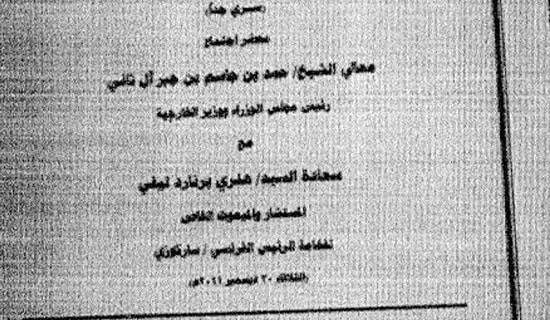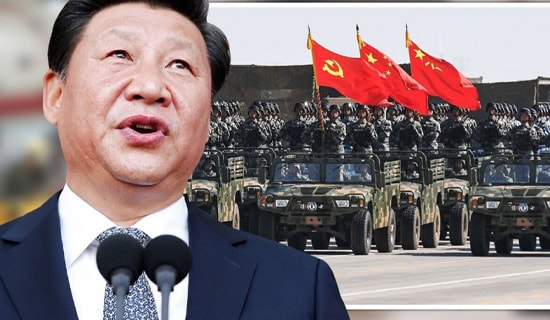In a February 24, 2020 article headlined "If I Were Palestinian" in the London-based Saudi daily Al-Sharq Al-Awsat, Egyptian author and journalist Khalid Al-Bari compared the Palestinians’ perception of their cause to the misdiagnosis of a disease, which not only fails to solve the problem but actually aggravates it. He called on them to assess their situation objectively in order to attain a solution that will afford them a dignified life.
In seeking a solution, he said, the Palestinians must take into consideration that Israel is powerful, that the Arab support for the Palestinian cause is not unlimited, and that all those who market old and erroneous solutions to the conflict do not have the Palestinians' interests at heart. He urged them to give up the idea of armed struggle and self-sacrifice, strive for peace with Israel, and focus on establishing vibrant communities and effective self-government in part of historic Palestine, in order to start living their lives.
The following are excerpts from his article:[1]

Khaled Al-Bari (Source: Youtube.com/watch?v=WRJSCZ_i5vo, April 9, 2013)
"A relative of mine had a stomachache during her pregnancy and went to the doctor, who diagnosed a bacterial infection in her liver and told [her family] to give her sweets in order to counter her low sugar levels. Her family… indeed fed her caramel cream in unusually large amounts.
SUPPORT OUR WORK

"There are two kinds of misdiagnosis, both of them serious. One kind [misidentifies] the reasons for the illness, and you [waste] time getting treated for a disease you do not have, while the real illness spreads through your body. This kind of misdiagnosis is a disaster. The second kind is an [even] bigger disaster, because you receive the opposite diagnosis [from the correct one], which not only ignores and neglects the real disease, but actually aggravates it.
"The same phenomenon is also common in political diagnoses. We misdiagnose the political disease and treat it in a way that deepens our disregard of [the real problem] or reinforces the factors that caused it, instead of removing them. Sometimes the misdiagnosis is provided by our rivals who openly declare their hostility towards us.
"The preferred method for circulating false [political] prescriptions is by alluding to [upholding] 'national principles,' namely old prescriptions that were in use hundreds of years ago and have not developed [since then] … The best proof of the bad faith of those who defend 'national principles' is that they exempt their friends from [upholding] them. Thus, you find the Ottoman Brotherhood [i.e., the Muslim Brotherhood, which is backed by Turkey] spreading all kinds of political and social ideas, while granting Turkey a permanent exemption from [upholding] them.
"As for our relative, we later discovered that she had suffered pain in the right side of her abdomen, beneath the ribs, not because of a liver infection… but due to pre-eclampsia, which developed because she was suffering from undiagnosed diabetes. In this case, the misdiagnosis, along with the large amounts of sugar [she consumed per the doctor's instructions], aggravated the disease and caused a miscarriage, following which she was also warned that a second pregnancy would be dangerous.
"The misdiagnosis of the Palestinian problem, and [the prescription of] 'national principles' as a treatment, have likewise done a disservice to the [Palestinian] cause. Turning it into a religious struggle surely reinforces Israel's claim [over the land], which is supported by the most widely-circulated book of scripture in the world [i.e., the Old Testament], which still, to a great extent, shapes historical memory in the West.
"By choosing to classify the conflict [as religious], the Palestinians chose to box with [champion boxer Mike] Tyson [i.e., with Israel], instead of challenging him to a match [in a sport] at which he does not excel. If I were Palestinian, my first priority would have been to establish my presence on the ground within the historical borders [of Palestine]. My temporary goal would be to make my sons understand… that there are many ways to live a dignified life, that dignified life is not confined to 'armed resistance' and self-sacrifice, and that the only truth regarding the [Israeli-Palestinian] conflict is that they were born in disputed territory… If I were Palestinian, I would have understood… that other nations, both friendly and otherwise, will support [me] only if their support does not boomerang against them and harm them… If I were Palestinian, I would have understood what has to be understood, namely that many of the region's countries, despite their support for the Palestinian rights, are [themselves] facing existential threats posed by people whose ideology impels them to control the destiny of others around them, and that an [even] greater danger is posed by Turkey, Iran and the jihad fighters – and unfortunately, some Palestinian leaders have chosen to join their [camp].
"If I were Palestinian, I would have understood that there is no shame in diagnosing [the situation] rationally. A doctor must not be ashamed to admit that he must perform a difficult surgery, which may even come to amputating a limb…
"True, Israel is a powerful country, and that is one of the major reasons to make peace with it. There is no shame in that, either. The conflict has created conditions that grow worse from generation to generation. The Palestinians… must renew their interest in daily matters, found beautiful communities that will inspire [the world] and prove that they are capable of living in peace. This must start with wise self-government in [a particular] territory. That, and only that, is the great challenge…"
[1] Al-Sharq Al-Awsat (London), February 24, 2020.




